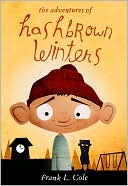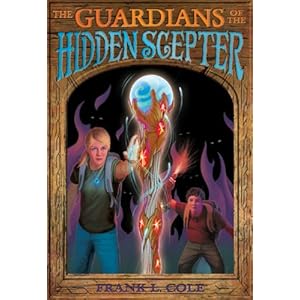A popular post from July 2011 (we miss you Lu Ann)
by Lu Ann Staheli
Several weeks ago a question came up about how can we get new readers to actually buy our books. Of course it’s a wonderful thing when the local library has a copy that regularly gets checked out, and it’s even great when our best friends buy a copy and let potential new readers borrow our books, but as any working writer knows, it’s an increase number of actual sales that puts money in our pockets.
We read all sorts of responses regarding better ways to market, how to reach a potential audience, and the necessity to blog/tweet/or friend on Facebook. But I decided to attack the question from the other side, and it gave me all sorts of insight into my own buying patterns as a reader. I hope my thoughts here will spark your thinking into how your own audience’s book-buying works, and maybe we will all see an increase in book sales if we truly understand what makes them purchase a book.
To start my query, I looked back at my buying history for the past six months. I buy a huge amount of print books online at Amazon, along with several books from both Kindle and Nook applications. I occasionally visit the local Seagull Books, rarely go to Deseret Books, and sometimes I will buy a book from Confetti Antiques & Books, or pick up a used book through Amazon online sellers. I used to buy books from eBay, but the cost of postage and the auction process have made my browsing time there no longer worth my time. Today, I’m just looking at the books I bought exclusively in print from Amazon. (I know, this list alone will blow you away at the number of books I actually do buy, and in only a six month period. It’s almost scary!)
So, what books did I recently buy and why?
1.
Critique Group: In an effort to always support members of my critique group (my mastermind group of friends!), I have six copies on pre-order of Variant by Robison Wells, and I bought copies of Ammon by H. B. Moore, Captive Heart by Michele Paige Holmes, and The Kiss of a Stranger by Sarah M. Eden. I bought books by J. Scott Savage and Annette Lyon last year at their release time, and I already have The Death Cure on order from our former critique member, James Dashner.
2.
Utah Authors: I buy books by other Utah authors and friends, or authors with Utah connections. I either have already received or have my pre-order filed for the following books: Crossed by Ally Condie, The Alloy of Law: A Mistborn Novel by Brandon Sanderson; Illusions by Aprilynne Pike, Possession by Elena Johnson. Monster Hunter International and Hard Magic by Larry Coreia, Beyond Foo: Geth and the Return of the Lithens from Obert Skye, Sean Grisworld’s Head by Lindsey Leavitt, The Forgotten Locket by Lisa Mangum, I Don’t Want to Kill You by Dan Wells, Miles from Ordinary by Carol Lynch Williams, The Beyonders: A World Without Heroes by Brandon Mull, Miles to Go and Michael Vey: Prisoner of Cell 25 by Richard Paul Evans, and The Lost Gate by Orson Scott Card.
3.
Student Recommendations: I buy books because my students will constantly ask me if I’ve read THIS yet. So, like it or not, I’ve ordered Inheritance by Christopher Paolini, The Son of Neptune and Throne of Fire by Rick Riordan, and Steampunk by Ann VanderMeer.
4.
Writing Projects: I buy books that will help me with a writing project or that was recommended to me by an agent or editor to fine tune my marketing. I Am Scrooge: A Zombie Story for Christmas by Adam Roberts, The Last Christmas of Ebenezer Scrooge: The Sequel to The Christmas Carol by Marvin Kaye, and Ebenezer: The Final Years of Scrooge by Donna Lee Howell will all likely point you toward the topic of the YA novel I’m currently writing, and Love Is Eternal A Novel of Mary Todd and Abraham Lincoln by Irving Stone is for my current non-fiction project. The Case of the Missing Marquess: An Enola Holmes Mystery by Nancy Springer, The Mysterious Benedict Society Collection by Trenton Lee Stewart, Ithaka by Adele Geras, Magic Below Stairs by Caroline Stevermer, Something Rotten by Alan M. Gratz, and I, Coriander by Sally Gardner all were suggested by a Dial editor who had read sample pages from me.
5.
Personal Interest: I buy books to fulfill my own crazy interests and passions. Does the Noise in My Head Bother You: A Rock’n’ Roll Memoir by Steven Tyler, Making the Grades: My Misadventures in the Standardized Testing Industry by Todd Farley, The Original Argument: The Case for the Federalist Papers by Glenn Beck and Joshua Charles, Damn! Why Didn’t I Write That by Marc McCutcheon, The Roots of Obama’s Rage by Dinesh D'Souza, Stories I Only Tell My Friends by Rob Lowe, If You Ask Me (And Of Course You Won’t) by Betty White, My Lucky Life by Dick Van Dyke, One Simple Idea: Turn Your Dreams into a Licensing Goldmine While Letting Others Do the Work by Stephen Key, Spirit Driven Success by Secret Millionaire Dani Johnson, The Millionaire Messenger: Make a Difference and a Fortune Sharing Your Advice by Brendon Burchard, Surrender the Pink and The Best Awful by Carrie Fisher.
6.
Series: I buy books from series I’ve been reading and enjoyed. Desires of the Dead by Kimberly Derting, Theodore Boone: The Abduction by John Grisham , Something Rotten (Thursday Next Novels) by Jasper Fforde
7.
Book Club: I occasionally buy books for my book club. Water for Elephants by Sara Gruen is on my Nook, but I won’t recommend it unless you’re not offended by explicit sex. Let’s just say, the ladies in our group where quite surprised.
8.
Gifts: I buy books that either my husband or one of my boys will enjoy. My husband has been reading the Seven Realms series by Cinda Williams Chima so The Gray Wolf Throne is coming in August. Trump University Wealth Building 101 by Donald Trump, Star Wars Character Encyclopedia from DK Publishing, and The Warlock by Michael Scott were also ordered this year.
9.
Market Buzz: I buy books that are getting tons of book market buzz, either at conferences, online, from TV programs I watch, or by hitting the charts of everyone’s must-reads. On this list I have A Discovery of Witches by Deborah Harkness. The 7 Tipping Points that Saved the World by Chris and Ted Stewart, White Cat by Holly Black, Robopocalypse by Daniel; H. Wilson, Johnny Appleseed: The Man, The Myth, The American Story by Howard Means, Rot & Ruin by Jonathan Maberry, and Miss Peregrine’s Home for Peculiar Children by Ransom Riggs. Everybody’s talking about the HBO series, The Game of Thrones from George R.R. Martin. Divergent by Veronica Roth, Bonhoeffer: Pastor, Martyr, Prophet, Spy by Eric Metaxas, 20 Years Younger: Look Younger, Feel Younger, Be Younger! by Bob Greene, Starcrossed by
Josephine Angelini, Failing Mr. Fisher by James Wintermote, 2030: The Real Story of What Happens to America by Albert Brooks, Romancing Miss Bronte by Juliet Gael, Story Engineering by Larry Brooks, and Stoneheart by Charlie Fletcher, 1491: New Revelations of the Americas Before Columbus by Charles C. Mann, 1434: The Year a Magnificent Chinese Fleet Sailed to Italy and Ignited the Renaissance and 1421: The Year China Discovered America by Gavin Menzies, Across the Universe by Beth Revis, and The 7: Seven Wonders That Will Change Your Life by Glenn Beck, Keith Ablow are also books I’ve bought because of buzz.
10.
Author Marketing: Occasionally I run across an online blog/tweet/video/or FB advert that sounds interesting. I video forwarded by Heather Moore to our critique group led me to The Nobodies Album by Carolyn Parkhurst. I read a forlorn-sounding blog from author Kirsten Hubbard about how her novel Like Mandarin had been lost in the mid-list, and I felt sorry for her, so I bought it. Beatle Meets Destiny by Gabrielle Williams had a title that caught my eye, and John Scalzi’s tweets made me order Old Man’s War and Fuzzy Nation. I ran across author Laura Ruby there also and ordered I Am Not Julia Roberts. Shannon Hale mentioned Mortification: Writers' Stories of Their Public Shame Robin Robertson on a day she blogged about her own mortification tale.
So what does all this mean? I buy books that are recommended by friends, students, and family. I buy books that fulfill my own career and interest needs. I buy books as gifts for friends and family. I buy books that everyone says are MUST READS or by an author who has somehow touched me.
Now the challenge for all of us is to figure out how the books we write can fit into one of those categories. How can we build better relationships with potential readers so they buy copies of our books, recommend our books to others, and help put our books onto the list of books that everybody must read?
Speaking of which, with as many books that are still on this list that I haven’t yet found the time to read, I’d guess I’d better get going. I wonder how many of these I can finish before my next box of books arrives?
.jpg)









